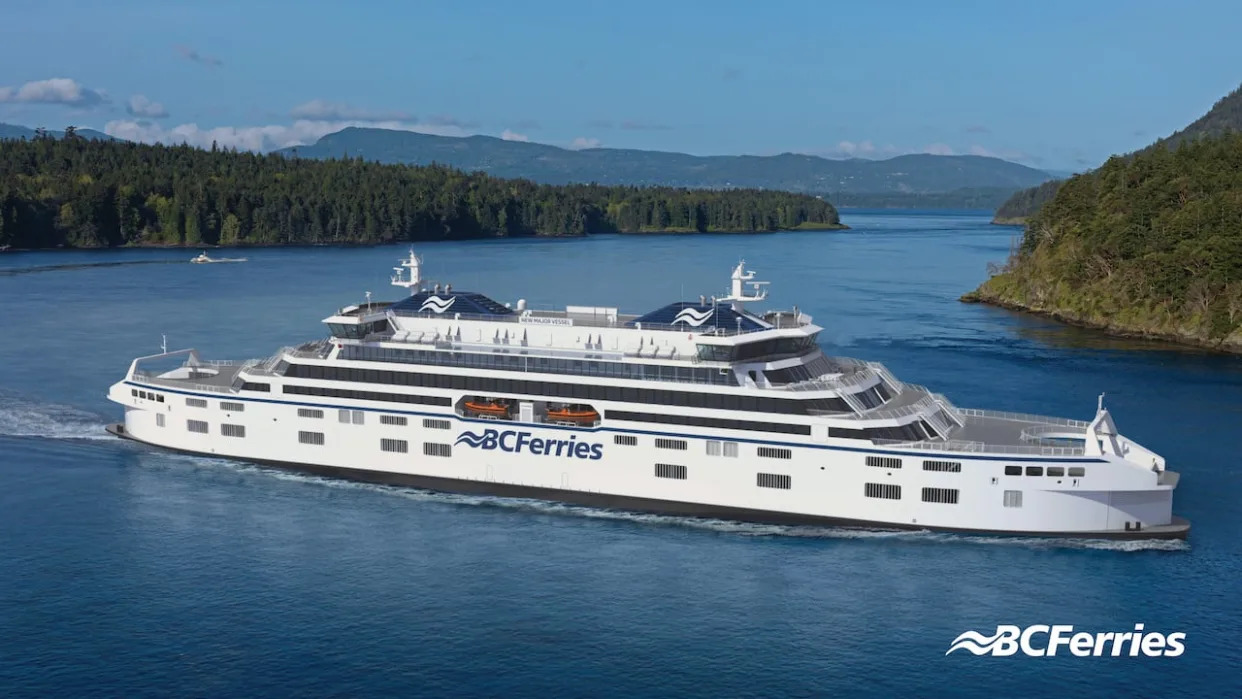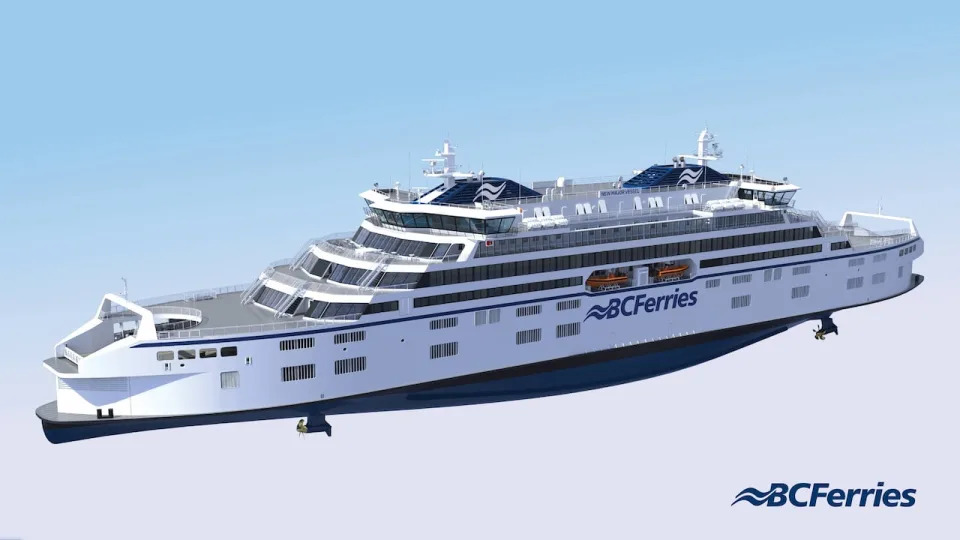CBC
Fri, April 19, 2024

B.C. Ferries says it plans to have seven new hybrid vessels built similar to the one shown in this rendering. (B.C. Ferries - image credit)
Labour unions and marine workers in British Columbia are calling on B.C. Ferries to build its new hybrid vessels locally, bringing more jobs to the coast.
B.C. Ferries says it plans to have seven new vessels built, the first of which could be ready for operation by 2029. The company says each ship would have capacity for 2,100 passengers — significantly more than current capacities of up to 1,500 on ferries that will soon be retired.
The company issued a request for expressions of interest (RFEOI) last fall.
Qualified local, national and international shipyards will be able to take part in the request for proposal process, which is expected to happen this summer. According to the RFEOI, the contract is expected to be awarded by December.
Build Ferries B.C., a group of unions and marine workers, wants local bids to be prioritized.
"Without strong requirements for Canadian content, a foreign shipyard will certainly win the competition," Build Ferries B.C.'s website reads.
"We must act now before this ship sails."

A second rendering of the new vessels B.C. Ferries is planning to have built.
The new vessels, similar the one shown here, would have capacity for 2,100 passengers. (B.C. Ferries)
Jeff Groot, spokesperson for B.C. Ferries, said that while the company believes in investing in local opportunities, the build has to be affordable.
"At the end of the day, the successful shipyard — whether it's local or not — needs to be able to build high quality, safe ferries and to deliver them to us on time," Groot said in an emailed statement.
He said B.C. Ferries "simply cannot" increase fares for passengers because it costs more to build ships in B.C.
Tax revenue should be considered: union
But Phil Venoit, business manager for the International Brotherhood of Electrical Workers Local 230, said cost alone should not determine the contract for this build.
"It should be price minus the taxes that the employers and the workers would be paying back to government," he told On The Coast host Gloria Macarenko.
"We could literally be paying more for ferries if you don't consider the taxes paid by the employers and the employees to build this."
He also points to the cost of fuel and wages, things that will inherently increase by the time the new ships are on the water, which will increase fares.
Dan McGreer, a retired architect and professor in UBC's naval and marine engineering program, believes local shipyards, in particular Seaspan, have the knowledge and ability to build the seven new, large vessels, but worries about labour capacity and says cost could be a problem for local builders.
"They're not really competitive with the yards in Europe and Asia," he said. "Those yards could probably build the ships at a lower cost, but there's certainly benefits to building the ships in B.C. — all the labour, wages stay here."
In an email to CBC, Ali Hounsell, director of communications for Seaspan, said building in B.C. would help the province's shipbuilding capacity grow, creating more jobs and economic benefits for other British Columbians.
Local jobs
Venoit worked on the Spirit Class ferries in the early '90s and worries opportunities for young people looking to work in the trades will dwindle without the creation of shipbuilding jobs.
"I was a teenager that graduated out of Dunsmuir High School in Colwood, just outside of Victoria, and started in the shipyards at 18 years old as an electrical apprentice," he said.
"Why would you not want to contribute to high-paying jobs from British Columbia … instead of sending them overseas?"
B.C.'s Ministry of Transportation said in an email that "Canadian shipyards have been encouraged to apply," adding that "B.C. shipyards and their skilled employees already benefit from repair and refit work contracted by B.C. Ferries."
Groot said affordability is a key factor for B.C. Ferries, too.
"I'd encourage every shipyard that's interested [in this contract] to consider the affordability pressures that British Columbians are facing in all areas of their lives, and then put its best foot forward with any proposal it chooses to submit."
No comments:
Post a Comment